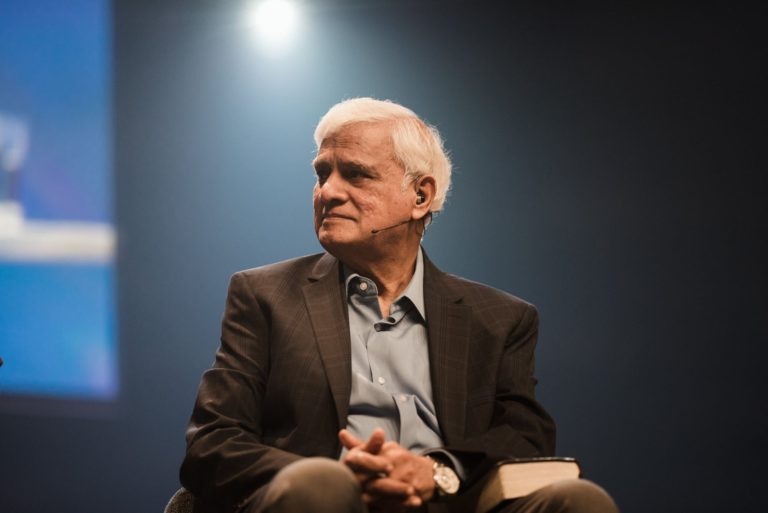Q: Who was the greatest comedian in the Bible? A: Samson, because he brought the house down
Turning on the news or flicking through social media, it’s easy to get absorbed in what is happening in the world right now. We get caught up in the most pressing issues of the day. Maybe we don’t need the news for that; perhaps it’s our individual lives that have us completely transfixed on the here and now with all of its competing demands. Our daily life keeps us moving from one thing to the next.
For followers of Christ, there is a view that we need that which reaches beyond the immediate concerns of today. That view is eternity. It comes with hope and warning – and we need to heed both. Let’s take off the lens of our present circumstances for a moment and look with a steadfast gaze towards eternity.
Read and reflect on 1 Peter 4:7-11
The end of all things is near. Therefore be clear-minded and self-controlled so that you can pray. Above all, love each other deeply, because love covers over a multitude of sins. Offer hospitality to one another without grumbling. Each one should use whatever gift he has received to serve others, faithfully administering God’s grace in its various forms. If anyone speaks, he should do it as one speaking the very words of God. If anyone serves, he should do it with the strength God provides, so that in all things God may be praised through Jesus Christ. To him be the glory and the power for ever and ever. Amen.
1 Peter 4:7-11
Discussion
- Are we living with a view of eternity?
- Are we living as though Christ could come today?
- Having a proper view of eternity will drastically affect how we live and also prepare us to suffer. Are we experiencing this?
We need an eternal perspective to endure the world
In fact, Peter in this text is encouraging these saints to be prepared to suffer by focusing on the nearness of “the end of all things.” Look at what he said in the beginning of chapter 4:
“Therefore, since Christ suffered in his body, arm yourselves also with the same attitude (emphasis mine), because he who has suffered in his body is done with sin (1 Peter 4:1).
He calls these believers to have the attitude of Christ in being willing to suffer. Like any good soldier, Christ was prepared to give his life and Christians should have this attitude as well. In addition, Peter says in 1 Peter 4:7-11 that having a proper eschatology, a view of the end times would also help these believers with being prepared to suffer.
We can have no doubt, that one of the things that made Christ willing to suffer was a proper view of eternity. Christ always lived with the thought of the end in mind. In fact, throughout the gospels Christ sought to prepare Peter and the rest of the disciples for sufferings that were coming through developing this view. Look at what he said:
“Do not let your hearts be troubled. Trust in God; trust also in me. In my Father’s house are many rooms; if it were not so, I would have told you. I am going there to prepare a place for you. And if I go and prepare a place for you, I will come back and take you to be with me that you also may be where I am (emphasis mine).
John 14:1-3
How could these disciples keep their hearts from discouragement and giving up, even though they knew their master was about to die? They needed to have a view of heaven and Christ’s second coming. Christ went to build a place for them and he is coming again. This would help keep their hearts from being troubled during the coming suffering.
It is the same for us. One of the secrets to being able to suffer in a world where we are pilgrims is to live in view of the imminent return of Christ.
When Peter says “the end is near”, he was essentially saying there is nothing keeping Christ back from returning at any moment. This was the early church’s blessed hope that helped enable them to endure the sufferings they were experiencing in the world. Christ could return at any time.
Even though it has been 2000 years since this was written, it is still as true for us today as it was then. In fact, it is truer because we are closer to Christ’s coming. When Christ resurrected we entered into the final stage of world history. It is a stage called the “last days.” Look at what the writer of Hebrews said:
In the past God spoke to our forefathers through the prophets at many times and in various ways, but in these last days he has spoken to us by his Son, whom he appointed heir of all things, and through whom he made the universe (emphasis mine).
Hebrews 1:1-2
Here are 4 reasons why we need to keep that eternal perspective in view ( a Discussion can follow each one)
1. Our Life in This World Is Temporary
“So we fix our eyes not on what is seen, but on what is unseen, since what is seen is temporary, but what is unseen is eternal” (2 Corinthians 4:18).
We are on this planet for such a short time in comparison to eternity. We may live our lives believing we have years to do all that we want, but the reality is none of us knows how long we have left. Our life is fleeting, so like the psalmist our prayer might be to ask the Lord to “teach us to number our days, that we may gain a heart of wisdom” (Psalm 90:12).
We must consider the brevity of life, not knowing what will happen tomorrow, as our life is but “a mist that appears for a little while and then vanishes” (James 4:14). For Christians, we are pilgrims passing through this world; it is not our home, nor our final destination. It helps us to keep that perspective, having the confidence that our momentary troubles will pass. It should also remind us to not become attached to the things of this world.
2. People Are Facing Life and Death without Hope
“For I am not ashamed of the gospel, because it is the power of God that brings salvation to everyone who believes: first to the Jew, then to the Gentile” (Romans 1:16).
Death is inevitable for all of us, and many in our community and around the world are living and dying without knowing the good news of Jesus. Eternity should propel us and drive us with an urgent desire to share the gospel. We know that the gospel is the power of God for salvation to all who believe (Romans 1:16).
Death is not the end of the story for any of us as there will be an eternal outcome, whether in the presence of God or out from His presence for eternity (2 Thessalonians 1:9). Jesus has made a way for all people to come into His Kingdom through the cross on which He died for our sins. We must share this truth with others, for their eternal future depends on it.
3. Believers Can Live in Hope of Heaven
“For we know that if the earthly tent we live in is destroyed, we have a building from God, an eternal house in heaven, not built by human hands’’ (2 Corinthians 5:1).
Believers have a secure hope that they will one day be with God in heaven. The death and resurrection of Jesus has made a way for sinful mankind to be reconciled to a holy God. When someone declares with their mouth that Jesus is Lord and believes in their heart that God raised Him from the dead, they will be saved (Romans 10:9) and they have eternal life. We can live boldly, having full assurance in where we are going after death. We also have the promise that Jesus will return, and we will be with Him forever (1 Thessalonians 4:17).
The gospel also provides hope in suffering with the eternal promises found in Scripture. We know that we will suffer in this life and that the very call of following Jesus is a call to deny ourselves and take up our cross (Matthew 16:24). However, our suffering is never for nothing and there is purpose in the pain which Jesus can use for our good and His glory. When suffering comes, we must remember that He is the Savior of the world who suffered for all of us because of our sin, yet by His wounds, we are healed (Isaiah 53:5; 1 Peter 2:24).
Even if we are not physically healed in this life, we will be healed in the life to come where there is no more suffering or pain (Revelation 21:4). We have hope both now and for eternity that Jesus will never leave us, nor forsake us as we go through struggles and suffering here on earth.
4. The Gospel Needs to Be Proclaimed Clearly and Truthfully
“And pray for us, too, that God may open a door for our message, so that we may proclaim the mystery of Christ, for which I am in chains. Pray that I may proclaim it clearly, as I should. Be wise in the way you act toward outsiders; make the most of every opportunity. Let your conversation be always full of grace, seasoned with salt, so that you may know how to answer everyone” (Colossians 4:3-60).
If we fail to understand the gospel ourselves, it can have eternal consequences as it shapes our view of eternity. There are ramifications for not proclaiming the gospel with clarity to others or omitting core truths because we fear what others will say. Having an eternal view should keep the gospel at the forefront of our mind and direct our conversations with others.
This is the greatest news for a broken world desperately hungry for hope; we shouldn’t keep it to ourselves. There is a need for urgency – do others know Jesus? How can we daily live our lives with fervor for the souls of those we encounter? Our minds can be filled with God’s Word which shapes our understanding of who He is and the truth of the gospel of Jesus Christ as we seek to faithfully proclaim it to others.















